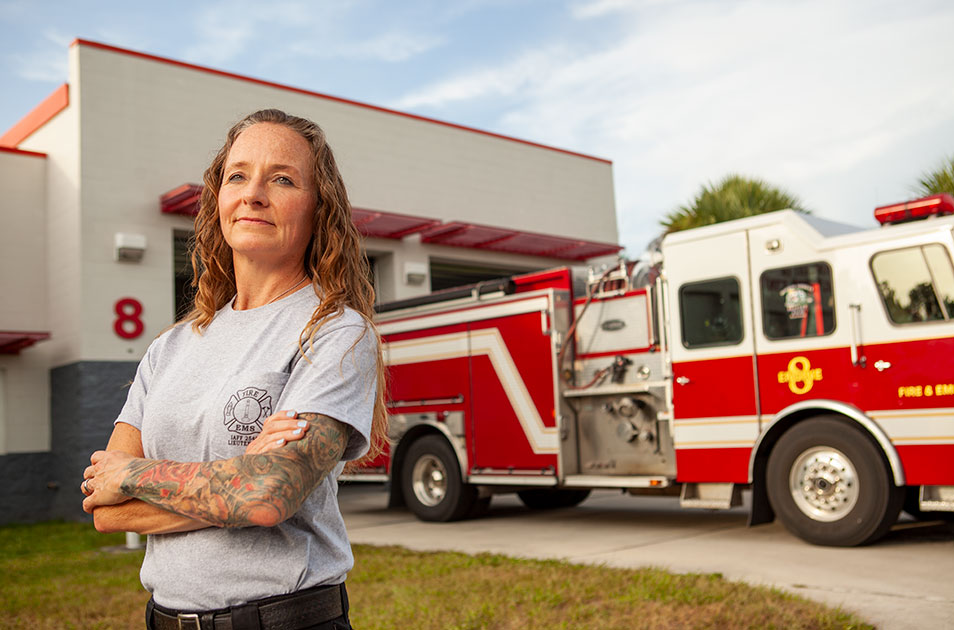Contact us
401 W. Kennedy Blvd.
Tampa, FL 33606-13490
(813) 253-3333
Lt. Amy Judy ’92, who risked her life during a rescue, doesn’t want to be called a hero. But her community honored her in two unexpected ways.

After saving an unconscious woman in a home fire, Lt. Amy Judy ’92 was awarded the Public Safety Officer Medal of Valor.
Within a few months of being hired as an EMT, Charlotte County announced that it was merging the EMS and fire departments, and she was encouraged by the county to go to fire school. While female firefighters are still rare (only 4% of career firefighters were female as of 2018, according to the National Fire Protection Association), that wasn’t the case locally, because all of her county’s EMTs who were physically able to go to fire school were prompted to do so. She now manages a team of four to five people.

Only 4% of career firefighters in the U.S. are female – and Lt. Amy Judy ’92 is part of that small group.

Lt. Amy Judy ’92 was invited to fly with the U.S. Air Force Thunderbirds as a “Hometown Hero.”
More UT News